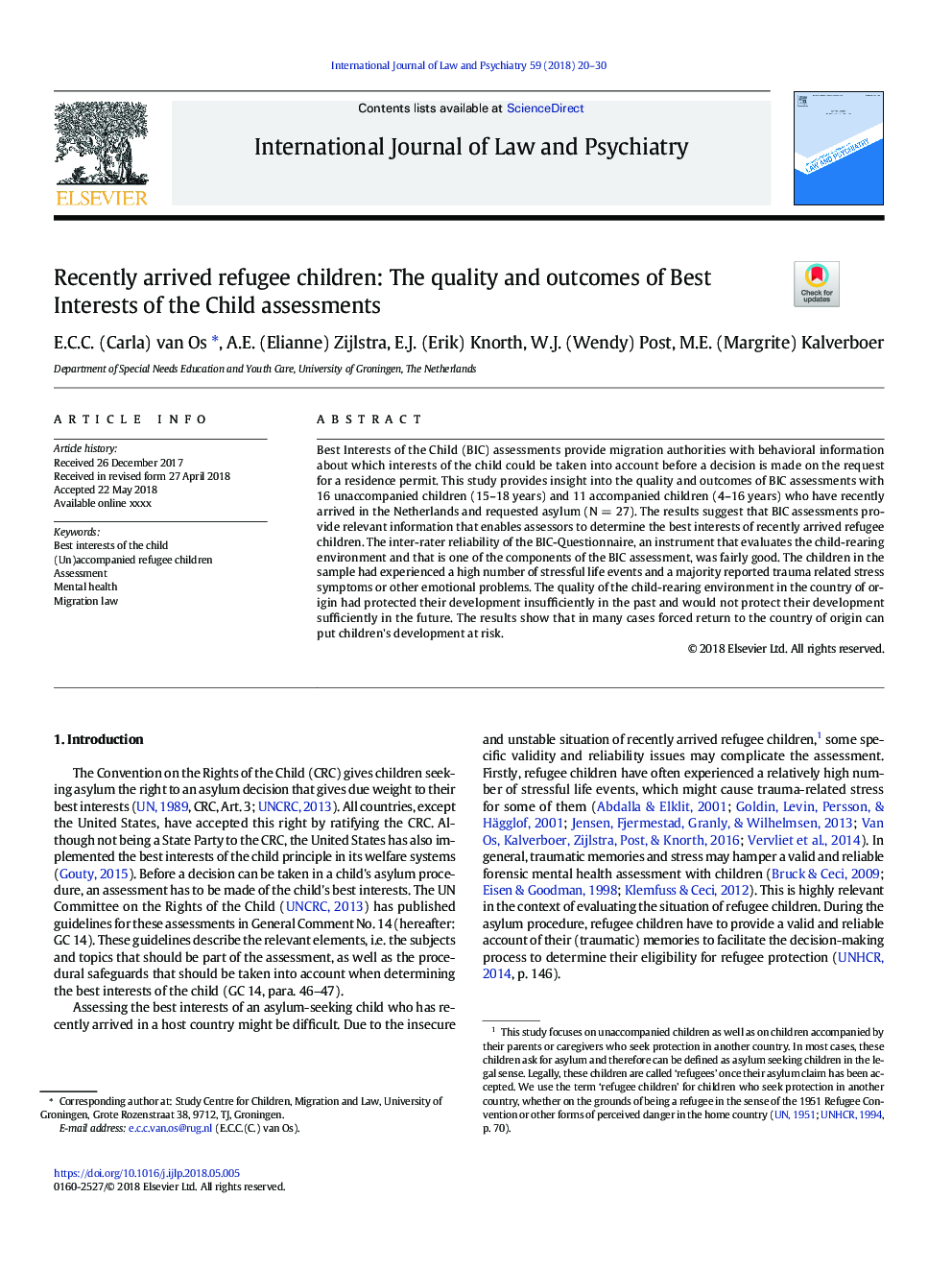| Article ID | Journal | Published Year | Pages | File Type |
|---|---|---|---|---|
| 6554481 | International Journal of Law and Psychiatry | 2018 | 11 Pages |
Abstract
Best Interests of the Child (BIC) assessments provide migration authorities with behavioral information about which interests of the child could be taken into account before a decision is made on the request for a residence permit. This study provides insight into the quality and outcomes of BIC assessments with 16 unaccompanied children (15-18â¯years) and 11 accompanied children (4-16â¯years) who have recently arrived in the Netherlands and requested asylum (Nâ¯=â¯27). The results suggest that BIC assessments provide relevant information that enables assessors to determine the best interests of recently arrived refugee children. The inter-rater reliability of the BIC-Questionnaire, an instrument that evaluates the child-rearing environment and that is one of the components of the BIC assessment, was fairly good. The children in the sample had experienced a high number of stressful life events and a majority reported trauma related stress symptoms or other emotional problems. The quality of the child-rearing environment in the country of origin had protected their development insufficiently in the past and would not protect their development sufficiently in the future. The results show that in many cases forced return to the country of origin can put children's development at risk.
Keywords
Related Topics
Health Sciences
Medicine and Dentistry
Forensic Medicine
Authors
E.C.C. (Carla) van Os, A.E. (Elianne) Zijlstra, E.J. (Erik) Knorth, W.J. (Wendy) Post, M.E. (Margrite) Kalverboer,
